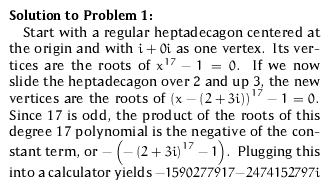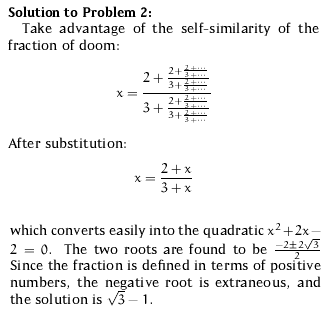
Dear Mathematics Majors and Minors,
Welcome to another exciting semester of learning mathematics. I extend a special welcome to recently-declared math majors and minors. Currently there are about 82 majors and 18 minors in mathematics.
I know that many of you are thinking about summer programs or courses at other universities and that some of you will be abroad next year. Also, many of you who will be graduating this spring are seeking positions where you can put your math studies to good use. Below, I list some reminders that may be helpful to you.
-Harold Layton
Professor Lisa Fauci of Tulane University will give a talk March 25 at 4:00 p.m. in room Teer 203. The title of her talk will be ``Modeling Biofilm Processes in a Moving Fluid.''
Abstract: An important aspect of microbial processes is the propensity of cells to aggregate and adhere to each other and bind to a surface. These ``biofilms'' are of interest to researchers in a variety of fields including bioremediation, oil recovery, and medicine. In this presentation, we will discuss the mathematical modeling of bacterial swimming and chemotaxis, fluid dynamics, and cell adhesion and detachment from the biofilm. Computer simulations will be presented.
All students and faculty are invited.
The Duke University Math Union will hold its next meeting Tuesday, February 4 at 5:15 in room Physics 120. The meeting will be about summer opportunities related to mathematics, and writing problems for Duke's high school math contest.
The union is a club for students interested in math contests, research, and planning events such as speakers. Contact Tung trantt@acpub or Robert schneck@acpub for more information.
A proof tells us where to concentrate our doubts.--Morris Kline
MCM, sponsored by the Society for Industrial and Applied Mathematics, is a contest for undergraduates dealing with real-world problems and solutions. The university is allowed to enter several teams of three students. Each team works independently to solve one of the two problems posed and, during the course of the weekend, writes a paper about the solution. The papers are judged and given a ranking, either Outstanding, Meritorious, Honorable Mention, or Successful Participant. The Outstanding papers are published in the fall issue of The UMAP Journal. Anyone interested in applied math should find the MCM worthwhile.
Last year, the two problems were to locate a submarine using only the noise naturally present in the ocean, and to create an optimum but fair process for judging entries in a subjective contest, such as the MCM itself. Duke entered one team, which earned a ranking of Meritorious on the submarine problem.
Good teams have a mixture of mathematical talent, writing ability, and computer skills. Expect to do some research -- the submarine problem required a lot of reading. Computer simulations are frequently useful, as are programs such as Maple and MathCad. Since there is no right answer, no specific knowledge is required; good solutions usually come from creatively applying what you already know to the problem. However, it is sometimes useful to explore unfamilliar subjects. For example, a problem from several years ago involving a computer network was best solved using some advanced but learnable graph theory.
The contest does take up a lot of time, and most of it is spent with other members of the team. This year, the contest goes from Friday, February 7 until 5:00 p.m. on Monday, February 10.
Contact Garrett at wgm2@acpub.duke.edu if you are interested.
For two and a half hours on October 26, 1996, sixteen Duke undergraduates struggled to solve seven challenging problems on the 18th annual Virginia Tech Mathematics Contest. Their efforts paid off well as six of the Duke students ranked among the top thirteen of the roughly 175 participants from 30 colleges and universities in the Southeast. In this contest, Noam Shazeer '98 placed second, Robert Schneck '97 third, and Johanna Miller '99, who won the contest last year, came in sixth. Craig DeAlmeida '99, Robert McNerney '99 and Spencer Shepard '00 were also among the top finishers.
A linguist would be shocked to learn that if a set is not closed this does not mean that it is open, or again that ``E is dense in E'' does not mean the same thing as ``E is dense in itself.''- J. E. Littlewood
On a rainy Saturday in early December, sixteen Duke students joined 2500 others from nearly 400 colleges and universities in the US and Canada to participate in the fifty-seventh annual William Lowell Putnam Mathematical Competition. Students must work for six hours on twelve very challenging mathematical problems that require ingenuity and creativity rather than advanced mathematical skills. In addition to prizes of up to $1000 for the five highest individual scorers, a team designated by the school competes for the top prize of $7500. Teams from Duke have placed in the top ten on four occasions from 1990 to 1995, including a second place finish in 1990 and first place honors in 1993. Associate professor David Kraines, coach of the 1996 team consisting of Andrew Dittmer, Robert Schneck and Noam Shazeer, is confident of a strong finish this year. Results will be announced in late March.
A great truth is a truth whose opposite is also a great truth.- Thomas Mann
Duke math majors Johanna Miller '99 and Robert Schneck '97 presented papers on their research at the American Mathematical Sociey meetings recently. Nearly 4000 mathematicians gathered in San Diego from Jan 7-11 for this annual event. Johanna's paper, ``Mauldin-Williams graphs with unique dimension,'' was written while she attended the Research Experiences for Undergraduates (REU) summer program at Hope College in Michigan. Robert's paper, ``The sum of all distances in a random graph'' grew out of work he did at the REU program at Michigan Tech University. Their travel expenses were covered in part from the mathematics department's Putnam Mathematical Competition cash awards.
A list of REU programs for the summer of 1997 will soon be available at http://www.nsf.gov/ftp/MPS/letters/reulist.txt
In science one tries to tell people, in such a way as to be understood by everyone, something that no one ever knew before. But in poetry, it's the exact opposite.- Paul Dirac
Teach For America is the national teacher corps of talented, dedicated individuals from all academic majors and cultural backgrounds who commit two years to teach in urban and rural public schools. Since its inception in 1989, over 20,000 college students have competed to enter the program, and nearly 4,000 of them have been placed as teachers in 13 geographic areas across the country. These corps members have exceeded traditional expectations and have brought a tremendous sense of possibility to their students, schools, and communities.
There is a tremendous need in the school districts where Teach For America works for individuals qualified to teach mathematics. Your background as a mathematics major is essential in opening up the world of math and science to the students in under-resourced urban and rural schools around the country. Participants in Teach For America's Math and Science Initiative have the opportunity to develop partnerships with people in the field of mathematics, as well as pursue a summer internship between the two years in the classroom.
To get more information and a Teach For America application, visit the home page http://www.teachforamerica.org, or call 1-800-832-1230.
Inspire the next generation of scientists, engineers, and mathematicians while creating exciting opportunities for your own career.
You may pick up recent issues of Math Horizons in room Physics 121. Profit from a mathematical analysis of wild card poker, learn about the life and works of the mathematicians, Emmy Noether and Ron Graham, and explore the strange world of surreal numbers, and much more.
All great theorems were discovered after midnight.- Adrian Mathesis



Faculty Sponsor - David Kraines,
dkrain@math.duke.edu
Student Editor - Garrett Mitchener,
garrett@math.duke.edu